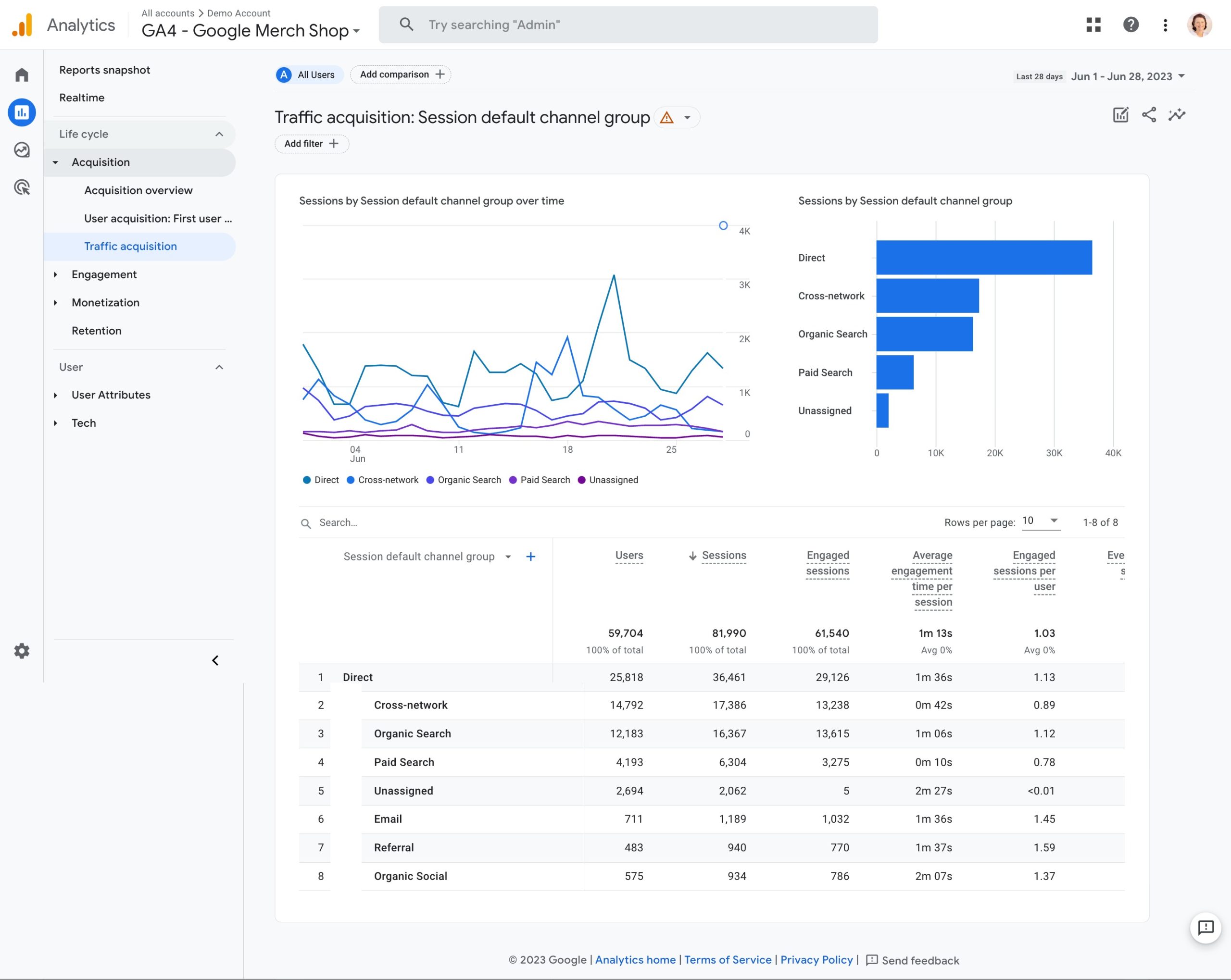Businesses of all sizes are increasingly relying on analytics platforms to gain valuable insights, make informed decisions, and stay ahead of the competition. However, with the multitude of options available, selecting the right analytics platform can be a daunting task. In this article, we will guide you through the key factors to consider when choosing an analytics platform for your website.
Understanding Your Analytics Needs
Before selecting an analytics platform, it is crucial to first understand your website’s unique needs and requirements. Consider the specific goals you want to achieve with analytics, the type of data you’ll be working with, and the size of your data sets. Furthermore, think about the level of technical expertise you and your team have and whether you need a user-friendly interface or advanced analytical capabilities.
Website Analytics Platforms Options
Google Analytics
Google Analytics is undoubtedly one of the most popular and widely used website analytics platforms. It provides comprehensive insights into website traffic, user behavior, conversion rates, and more. It offers a user-friendly interface, customizable reports, and integration with other Google products and advertising platforms. To learn more, go to https://analytics.google.com/analytics/web/.
Adobe Analytics
Adobe Analytics, part of the Adobe Experience Cloud, is another leading website analytics solution. It caters to enterprise-level businesses and offers advanced analytics capabilities, including real-time data, customer segmentation, and powerful data visualization tools. Adobe Analytics aims to provide businesses with in-depth customer insights to optimize their digital experiences. To learn more, go to https://business.adobe.com/products/analytics/adobe-analytics.html.
Matomo (formerly Piwik)
Matomo is an open-source web analytics platform that stands out for its emphasis on data privacy and security. Users can host Matomo on their own servers, giving them full control over their data. It offers a range of features, including real-time analytics, goal tracking, and customizable dashboards, making it a popular choice for those who prioritize data ownership and privacy. To learn more, go to https://matomo.org/.
Scalability and Performance
As your website grows, so will your data. Therefore, choosing an analytics platform with scalable capabilities is vital. Ensure that the platform can handle your current data volume and can easily accommodate future growth without compromising performance. Look for options that offer flexible storage and computing resources to avoid bottlenecks and ensure seamless data processing.
Ease of Integration
An analytics platform’s ability to integrate with your website is paramount. The last thing you want is to have disjointed systems that hinder efficient data flow and analysis. Seek a platform that can seamlessly integrate with your current data sources, databases, and other applications. Compatibility with popular programming languages and APIs is also essential for smoother data manipulation.
Data Security and Compliance
When dealing with sensitive business data, security is non-negotiable. Choose an analytics platform that implements robust security measures, such as data encryption, role-based access controls, and regular audits. Additionally, ensure that the platform complies with relevant data protection regulations, such as GDPR or CCPA, to avoid legal complications and maintain customer trust.
User-Friendly Interface
An intuitive and user-friendly interface is a must-have, especially if you have non-technical users who will be reviewing and using the data. Look for platforms with drag-and-drop functionalities, customizable dashboards, and interactive visualizations to enable seamless data exploration and analysis. Training new team members should be quick and straightforward, empowering your workforce to use the platform’s full potential.

Advanced Analytics Capabilities
While a user-friendly interface is essential, don’t overlook the significance of advanced analytics capabilities. Depending on your organization’s needs, consider platforms that offer features such as machine learning, predictive analytics, natural language processing, and artificial intelligence. These cutting-edge tools can elevate your data insights to the next level, unlocking hidden patterns and opportunities.
Cost and Budget Considerations
Budget constraints are a reality for most businesses. Before committing to an analytics platform, thoroughly evaluate the pricing structure and associated costs. Some platforms charge based on the volume of data processed or the number of users, while others offer flat-rate plans. Take into account any additional fees for training, customer support, or data storage. Weigh the features you truly need against the costs to make an informed decision.
Support and Customer Service
A reliable analytics platform provider should offer excellent customer support to assist you during implementation and address any issues that may arise. Look for platforms that provide comprehensive documentation, video tutorials, and responsive customer service. Additionally, user forums and community support can be valuable resources to tap into for troubleshooting and knowledge sharing.
Scalability and Future-Proofing
As your business evolves, so will your data requirements. Choosing an analytics platform that aligns with your long-term vision and growth strategy is crucial. Consider how well the platform can adapt to changing business needs and whether it can support emerging technologies and trends. Avoid getting locked into proprietary systems that may hinder your ability to switch to more suitable solutions in the future.
Take Away
Choosing the right website analytics platform is a critical step in utilizing the power of data to drive informed decision-making and gain a competitive edge. By understanding your organization’s unique needs, focusing on scalability, integration, security, and usability, and evaluating the platform’s cost-effectiveness and support services, you can make a well-informed choice. Remember, the ideal analytics platform should not only cater to your current requirements but also empower your business to thrive in a rapidly evolving data-driven landscape.


